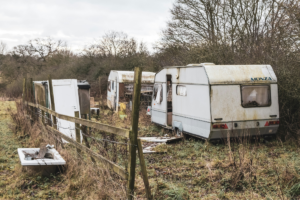Rural vs. Urban Experiences
 Homelessness, both rural and urban, affects communities across the state of Georgia. A recent Point-in-Time count found that more than 12,000 Georgians experienced homelessness. While this reflects a 37% decrease since 2007, much work remains to address this issue.
Homelessness, both rural and urban, affects communities across the state of Georgia. A recent Point-in-Time count found that more than 12,000 Georgians experienced homelessness. While this reflects a 37% decrease since 2007, much work remains to address this issue.
To tackle the complexities of homelessness, we must understand its different forms, especially the contrast between rural and urban experiences. Although homelessness is commonly associated with cities, roughly one-third of Georgia’s homeless population lives outside urban centers. Yet, rural homelessness often goes unseen and under-addressed.
Prevalence and Visibility
Urban homelessness tends to be more visible, often associated with images of “the streets”—shelters, soup kitchens, and encampments. In contrast, rural homelessness is usually more hidden. Individuals and families may live in cars or abandoned buildings, double up with relatives, or occupy an old camper parked in a friend’s backyard. The narratives of non-urban homelessness go unheard and often escape our prejudgments, leaving us unable to acknowledge that homelessness comes in many shapes and sizes (and locations).
Causes
Both urban and rural homelessness are driven by overlapping factors such as lack of affordable housing and market demands driving up housing costs. However, rural areas often lack the social services and support structures of their urban counterparts. Additionally, lack of employment is another significant contributing factor. The more volatile rural economies prove susceptible to economic downturns in agriculture, factory closures, and the lack of diversified employment opportunities.
Expanding Our Vision
There is growing awareness of rural homelessness, exemplified by Georgia’s $2.5 million Rural Homeless Initiative grant. These grants reveal the diverse experiences of our rural neighbors and indicate that this statewide problem requires tailored solutions. While urban residents may face overcrowded shelters, rural populations often lack access to any services at all. A more comprehensive stance on the landscape of homelessness is needed—one that challenges inhumane legislatures that criminalize urban encampments and expands access to resources in rural areas.

